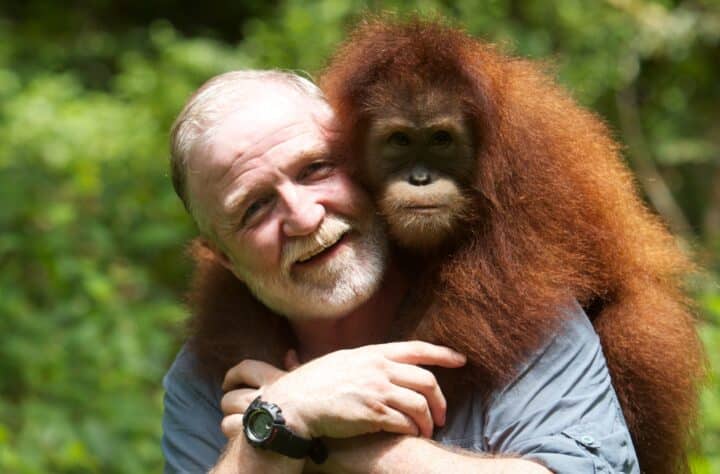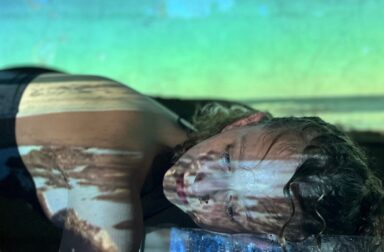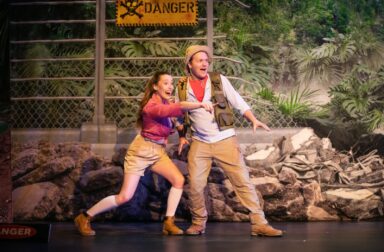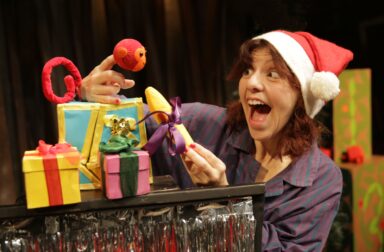
In honour of World Wildlife Day, we had the pleasure of speaking with renowned entomologist and broadcaster, George McGavin. With a career spanning over four decades, George is one of the most respected figures in his field, having authored numerous scientific papers and books on the fascinating world of insects.
What inspired you to become an entomologist, and how did you get started in this field?
I was always fascinated by the natural world. A primary school teacher once said that I could be distracted by a fly going past! How prescient of her – I hope I will always be distracted by passing flies, beetles or indeed anything else with six legs.
As someone who has studied insects all over the world, what are some of the more fascinating or unusual species?
Such a difficult question because all species are interesting and if you don’t think they are, it’s because you don’t know enough about them. Treehoppers are one of my favourite groups of insects. There are around 3,500 species and they are especially diverse in South America.
They have some of the most freakish shapes seen in the insect world and are masters of disguise; the back of the thorax often has weird and wonderful modifications that camouflage the rest of the insect below.

In addition to your scientific work, you’ve also become known as a popular broadcaster. How did you first get into this role?
I started off doing interviews and news items and that sort of thing. I then acted as Chief Scientific Advisor for Life in the Undergrowth, David Attenborough’s series about invertebrates.
A year or so later The Natural History Unit of BBC decided to make a series of filmed expeditions – three of them to tropical rain forests. My job on these Lost Lands series was to bring the beauty and importance of insects and other arthropods to life for a TV audience.
I was also a reporter on The One Show for 15 years and made 90 short films about the UK’s insects and other invertebrates. I’ve also made several stand-alone documentaries about such things as oak trees, decay, landfill, sewage, turtles, and even our hands and feet. I love reaching a wider audience and making intelligent and engaging programmes.
Your work has taken you to some pretty extreme locations. What are some of the biggest challenges you’ve faced?
Over the years I’ve been bitten and stung by some species and have come face to face with very dangerous snakes. The risk of tropical diseases is ever present, but the real dangers of working in remote and challenging locations such as rain forests is getting there. Helicopters and hire vehicles can be very dangerous things.

You have recently published a new book – The Hidden World: How Insects Sustain Life on Earth Today and Will Shape Our Lives Tomorrow. Tell us a little more about it.
In the book I tell the story of the most successful animals species ever to have evolved – the six-legged species that rule the world. We are so ignorant about these species that are crucial for our survival. I reveal details of their fascinating lives, how much they do for us, and what might happen to us if we do not take more care of them (and the rest of the natural world.)
Insects are often misunderstood and even reviled by many people. How do you think we can change this perception?
The bottom line is we, like very many other species, need insects around. All we need to do is look and learn and then we will realise that they are as essential to our survival as water and air. Look – learn – love.
Are there any animals or insects native to the South West?
Quite a few species are confined to the South West of England because it’s mild. These species may be found on the continent as well. A few migrant species may stay with us as our climate gets warmer. There is a species of spider and a species of harvestman confined to Plymouth – the spider is found no where else in the world.

What advice would you give to someone who is interested in pursuing a career in entomology?
Follow your instinct and stick at it. Whether you do a biology degree or become a self-taught naturalist, you will find a lifetime of wonder and fascination studying insects. If I had my time over again I wouldn’t change a single thing.
Finally, what is next for you? Do you have any upcoming projects that you’re particularly excited about?
Another book? Another television programme? Who knows? But one thing is for sure, I will be learning about insects and I will be their advocate until I pop my clogs.
See George McGavin at Taunton Brewhouse on Friday 14 April. Book tickets now.






